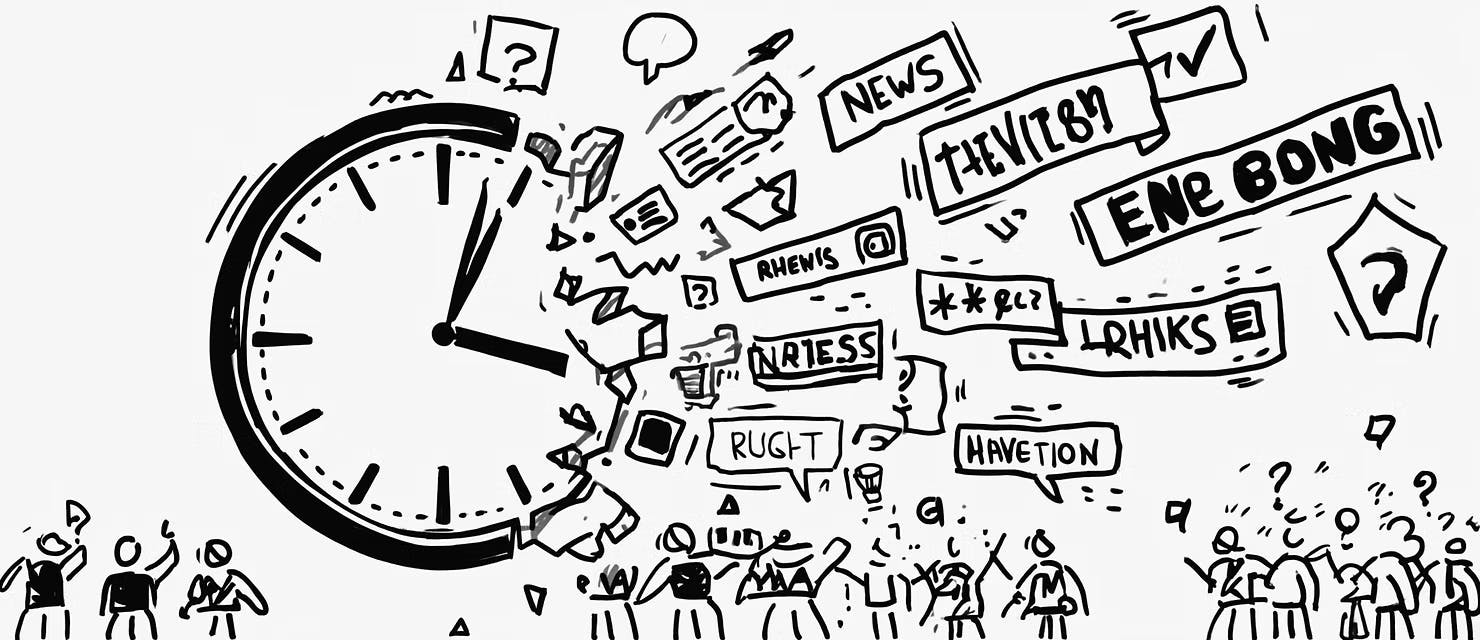The False Signal
The news cycle moves at lightning speed, making every headline seem urgent. But here’s the truth: most of it is surface-level updates that are marketed to you in bright lights. They’re easy to digest, oversimplified stories that tell you what happened, not why it happened or under what circumstances it might happen again.
This is expiring information: data points that pass for knowledge but quickly lose their relevance. It draws you in because it’s presented as urgent. You see a tiny fluctuation in the market or hear a story on the news, and your instincts kick in: I need to act now. Yet this information has a shelf life shorter than a carton of milk. When it expires, it leaves you with nothing substantial to guide you.
How It Warps Your Mind
Think of your mind as a map you’re constantly updating. Every piece of information you feed to your “map” either clarifies the terrain or distorts it. Expiring info might sketch a bold new road, only for that “road” to vanish days later, leaving behind confusion. This confusion fuels anxiety, driving you to crave even more updates. This chaotic cycle creates the illusion of knowing rather than true understanding.
For example, imagine reading a headline about a sudden price spike in a new stock. Convinced it signals a major trend, you alter your "map", expecting a boom. A week later, fresh data shows the spike was just a fluke. The “bold new road” you drew disappears, leaving you with nothing but uncertainty.
Expiring information doesn’t just distort your mental "map"; it hijacks your emotions. Every time you tune in to the latest headline, you’re putting yourself on an emotional rollercoaster. One moment, you feel elated by a success story, then panic when a new crisis emerges. It leaves you mentally exhausted and unable to think clearly. This constant up-and-down consumes massive amounts of energy and doesn’t give you enough room to understand the bigger picture.
Focus on What Lasts
It’s not about ignoring the world around you. It’s about filtering out the noise so you can see the actual signals. Find patterns. Study history—life often repeats in recognizable cycles, just in different flavors. When you examine shifts over months or years, daily drama fades into the background, and true patterns emerge. You begin spotting the events that genuinely reshape the landscape, rather than chasing every trivial ripple.
If you do follow current events, seek context. Don't just ask what happened but why it happened, and under what conditions it could happen again. By adopting this perspective, you filter out the noise and shift from reactive observer to thoughtful thinker.
What helps you to zoom out is recognizing that most of today’s news is just a snapshot—quick, but temporary. But by stepping back and looking at broader trends and historical context, you can predict or at least prepare for what might come next. Instead of reacting, you will start to think strategically, using the real signals to guide your actions. Focus on what lasts and let the noise diminish into the background.


